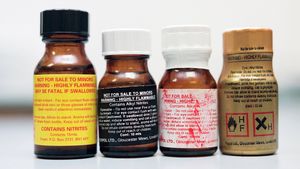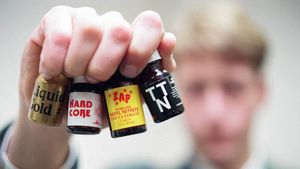1. How do I protect myself from HIV?
Using condoms greatly reduce your chances of becoming HIV-positive, but women aren’t always in a position where they can insist that their sexual partners use protection. Women can still protect themselves in other ways, including using PrEP, or a female condom. There are other modes of protection in the works as well including the ring and a vaginal cream. If you’re in the position to do so, encourage your sexual partner(s) to go with you and have an HIV test. (But keep in mind: even having a negative HIV test is not proof someone doesn’t have HIV, because it can take three months before the virus becomes detectable.
2. Can’t I Tell if Someone is Positive?
No. You can’t tell just by looking at someone if they have HIV or not. Although you may have known your sexual partner for years, they may not be open and honest about their risk factors (like injection drug use, numerous sexual partners, or having sex with other men). Considering the large number of people living with HIV who do not know their status, you can’t just take someone’s word that they are negative. They may not even realize they have HIV.
3. Does having other STIs impact my risks?
Yes, some sexually transmitted infections (STIs), such as gonorrhea and syphilis, greatly increase the likelihood of getting or spreading HIV. Another reason to use condoms. Other HIV prevention treatments may not protect against STIs.
4. How does being in an abusive relationship increase my risks?
According to Greater Than AIDS, one out of two women with HIV experiences intimate partner violence. Some of that violence occurs when a woman asks her partner to wear a condom or use other protection. Some of it occurs when the intimate partner learns a woman is HIV-positive. Some studies have also found correlations between a history of sexual abuse and increased likelihood of engaging in risky behaviors like having multiple partners, engaging in survival sex or exchanging sex for drugs. If you’re in an abusive relationship, get help. It could safe your life. Call the National Domestic Violence Hotline at 1−800−799−7233.
5. How did I get HIV?
Although there are a number of ways to get HIV (including sharing needles), the Centers For Disease Control and Prevention reports that 84 percent of of new infections among women were from heterosexual sexual contact. When heterosexual couples engage in unprotected vaginal sex, the woman is at a much higher risk of getting HIV than the man. Anal sex without protection is even riskier than vaginal sex for women. A national survey of women aged 20 to 39 found that more than 20 percent of respondents reported having anal sex in the past year.
6. Why do more people African American seem to have HIV?
While it is true that social inequalities increase the risk of someone becoming HIV-positive, some studies are showing that African Americans engage in no more risky behaviors that white Americans. One reason rates are higher among people of color is that these communities are smaller and people tend to have sex with partners of the same race/ethnicity. Women from these communities face a greater risk of HIV infection with each new sexual encounter.
7. Why are there disparities in health outcomes for some people with HIV?
The sad truth is not every demographic has the same chance of seeing positive health outcomes. People of color, transgender women, and people living in Southern states continue to have higher mortality rates from AIDS complications. Some of those disparities have to do with access to health care, poverty, substance abuse, and untreated mental health issues. But getting and staying on treatment is the first step in altering those disparities and there are government programs that can help you afford it. Reach out to your local HIV organization for info.
8. When should I start treatment?
Right now. Ideally you should begin treatment as soon as possible, like the day you get your positive result. Early HIV treatment has been shown to provide long-term advantages. Even if you don’t have symptoms, if your infection runs unchecked it can compromise your immune system. Scientists think the longer you go without antiretroviral treatment the larger the hidden HIV reservoir can become. And the sooner you’re on treatment, the sooner you can lower your viral load and even reach undetectable levels where it becomes highly unlikely for you to transmit HIV to a partner. So get that prescription and start taking your meds right away.
9. How do I protect my sexual partners?
There are a variety of ways to protect yourself and your partner, including honest communication about your status and risks, consistent condom use, having a partner who is on PrEP, keeping your viral load undetectable, and even choosing the right lubricant (avoid two ingredients: polyquaternium and polyquaternium-15, both types of polymers, which can increase the risk of HIV transmission). Good news: having a partner performing cunnilingus is extremely low-risk as long as the poz recipient isn’t menstruating.
10. What is “Treatment as Prevention?”
HIV medication reduces the amount of virus in an HIV-positive person’s blood. The goal is to reduce your “viral load” to a level so low it’s considered “undetectable.” Large-scale studies on both gay and straight couples in which one was HIV-positive and the other was not, have continued to demonstrate that when the HIV-positive person’s viral load is undetectable, the risk of transmission falls below 5 percent (even without the use of condoms). When you become healthier you reduce the chance of communicating HIV.
11. What is PrEP?
PrEP is short for pre-exposure prophylaxis. If you’ve read a condom box, you might already be familiar with the term prophylaxis, which is an action to prevent disease. Currently, Truvada is the only FDA approved PrEP treatment—essentially a daily HIV prevention pill—but other medications are in the pipeline, including vaginal creams. (Find more PrEP answers at HIVPlus Mag.com.)
12. Can I still have kids?
Absolutely. Medications can make it so there is less than a 1 percent chance of transmitting HIV between mother and child during pregnancy and birth. Sperm from an HIV-positive donor needs to be “washed” of HIV prior to insemination. The main difference for couples is that you’ll need a specialist who deals with HIV, fertility, and insemination. PrEP has also recently been prescribed by doctors off-label to prevent transmission during intercourse when couples are trying to conceive. If you want to adopt there are protections for HIV-positive parents-to-be that ensure you can’t be discriminated against.
13. Can I be a foster parent?
Yes. Having HIV isn’t a sufficient reason to prevent someone from becoming licensed as a foster parent. However, the ACLU’s “Know Your Rights: HIV Parenting” brochure notes that if your health is compromised to the point that you cannot adequately care for a child, you probably won’t get licensed. (As is the case with adoption, all prospective foster parents have to share their medical history and have a doctor’s go-ahead before they are certified.) As the AIDS Beacon reiterates, agencies are “allowed to reject the applicant if other factors exist that determine the prospective parents are unqualified.” Again, utilize your local HIV service organization or LGBT center (even if you are in an opposite-sex couple) to find poz-friendly agencies that work with the foster care system. Most major cities have such agencies.
14. Will being HIV-positive affect my ability to undergo gender confirmation surgery, plastic surgery, or gastric bypass surgery?
No. There was thought to be heightened risk from surgery, but a study published in 2006 in The Journal of the American Medical Association compared surgery data for both HIV-positive and HIV-negative patients and found that the two groups had the same level of complications from surgery. Moreover, medical workers are better educated about HIV than they once were, and the fear of positive patients has eroded. But you may still have to work harder to find a surgeon who has worked with HIV-positive patients, or if you’re transgender, a doctor who can work with both your HIV specialist and your confirmation surgeon.
15, What about hormone therapy?
Many post-menopausal women and transgender women are on routine hormone treatments and worry that HIV meds might interfere with estrogen levels. According to the Well Project, some studies have shown that both HIV itself and some HIV medications can impact hormone levels. With that said, there are HIV treatments that won’t interfere with your hormone therapy. Work with your doctor to find the right medication regimen to control your HIV and stay on your hormones.




















































































